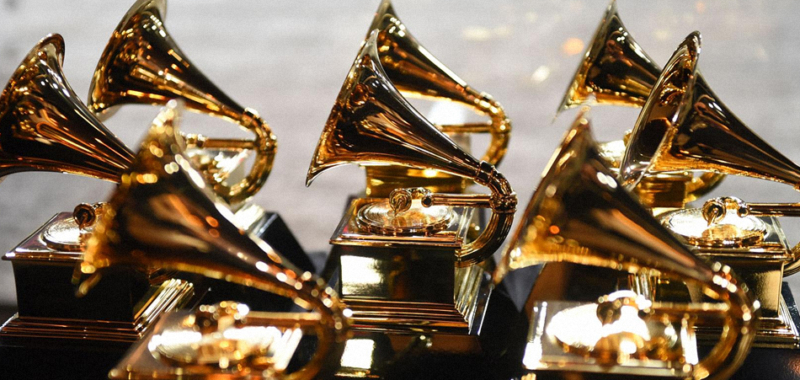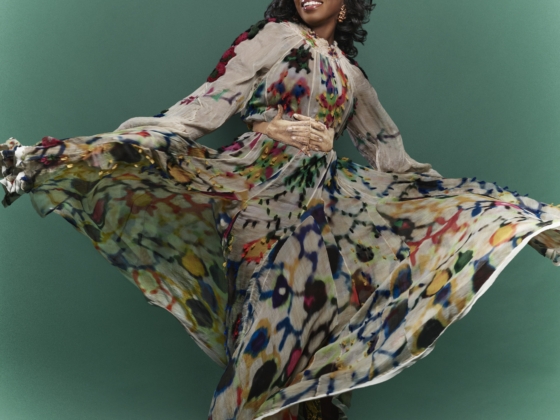This year will mark the 61st annual Grammy Awards and it may mark another year of the electronic/dance genre still not worthy of being recognized as a main stage category.
For those who may not know, the Recording Academy's Grammy Awards is an all-day event that features over 84 different categories. The ceremony kicks off in the early afternoon at a neighboring venue where talented artists, composers, and producers from around the world are celebrated in various categories—'Best Gospel Album', 'Best Children's Album', 'Best Immersive Audio Album', etc. A small break occurs at the end of the day to allow a select few to migrate over to the larger venue for the televised portion of the event. This is where the big red carpet entrance full of celebrity musicians take place and what most fans watching at home are familiar with. During this main event, the award show will televise the winners of the following 10 categories:
Artist of the Year / Record of the Year / Song of the Year / Breakthrough/New Artist / Best Pop Vocal Album / Best Pop Duo/Group Performance / Best Country Solo Performance / Best Urban Contemporary Album / Best Rock Album / Best Rap/Sung Performance
But the Electronic/Dance category continues to remain absent from the main televised event amongst its fellow genres. Why?
The contemporary subgenres of electronic music that we know of such as Techno or House have been around since the mid-80s, with various forms of synthesizer/electronic styles dating back to the '50s. But it wasn't until 2005 that the Recording Academy finally recognized the genre with the following awards: Best Dance Recording, and Best Dance/Electronic Album. Since then, we have seen some incredible musicians recognized within the category but as a whole, the award itself was still never valued enough to be presented during the main televised event.
Then, in 2013, electronic music's favorite robot duo Daft Punk took home 3 of the 10 main televised awards, winning;
And multiple electronic artists have continued to take home main stage awards and have performed numerous times throughout the televised portion of the awards. But it has still not been enough to warrant the Academy's recognition of the genre to be on par with Rock, Country, Pop or Hip-Hop.
Again, WHY?
Here's a two-part answer:
1. Conviction from within the genre. We mentioned earlier that this will be the 61st Annual Grammy Awards. This is a music industry institution that held its first award ceremony in 1959 and it can sometimes be as stubborn as the music industry itself. To better understand why it's still taking so long for electronic music to be recognized as a main category, you need to know what had to happen for the last genre to be added to the televised event.
In 1989, the Recording Academy was excited to unveil their newest categories for their 58th Annual Grammy Awards. That year, the ceremony would recognize artists in the fields of metal, bluegrass, and hip-hop. As hip-hop artists were already fighting hard for recognition politically, socially, and basically across the board during this era of American history, this seemed like a big win (at the time). But then, nominees were given notice that they would need to arrive early as their category will not be included in the televised evening event. For a genre that stemmed from outspoken protest and fighting to provide a cultural voice, this did not bode well. "To put it bluntly, a lot of the Grammy committee was 60-year-old white men that didn’t understand this brand-new genre,” recalled DJ Jazzy Jeff, who with The Fresh Prince was nominated for and went on to win the first-ever hip-hop Grammy that year. “At that time, hip-hop was just starting to break out of the mindset that it was going to die next year.”
As such, most of the nominees in the hip-hop category staged a boycott led by Def Jam Records own Russell Simmons and Lyor Cohen. And so the Academy was forced to listen. Hip-hop was finally given its due respect and recognition on the televised stage the following year and has remained there ever since. Rightfully so, since artists like MC Hammer were nominated in the best Best Record category shortly after.
So maybe electronic music needs to show the same conviction that hip-hop has for itself. Should artists like Skrillex and Diplo still agree to perform for the televised portion of the 2016 Grammy Awards, when their acceptance speech for winning 'Best Dance Recording' wasn't worth equal airtime?
(Here is Skrillex and Diplo proudly accepting their award during the un-televised portion of the event.)
(And here they are performing the single for an award that was not good enough to be recognized during the televised event but acceptable enough to be performed for millions of viewers during the televised event.)
2. Prehistoric measurement of industry worth – Of the 165 artists from the 2019 Coachella Music & Arts Festival bill, over 70 of them fall into an electronic/dance category. That means, there are twice as many electronic acts as either rock or hip-hop. You could argue that this number is skewed because of the two separate stages the festival dedicates solely to electronic music. But that would only strengthen the argument for electronic/dance genre's dominating influence amongst younger fans. Since Coachella's inception in 1999, an electronic act has performed on the mainstage every year, with Depeche Mode being the first headlining dance act in 2006. So, in terms of selling live music festival tickets, electronic music is clearly a dominating genre. But there are outdated measurements of clout that the older generation of music executives at the Recording Academy value. And that's radio play.
As of right now, there are over 1,946 different FM rock stations, 1,990 country stations, and 632 hip-hop stations in the U.S. In comparison, there are only 5 full-time dance radio stations (3 in Miami, 1 in Phoenix, and 1 in Seattle). There's a greater chance your baby-boomer parent will scroll across the same Lynyrd Skynyrd song for the 10 millionth time driving anywhere in the U.S. than they would the latest Richie Hawtin cut. For a music industry that just started taking digital streams seriously in 2016, these outdated views on a genre's worth are still weighted heavily by older institutions, such as the Recording Academy.
Final Thoughts
According to a 2018 IMS Bussiness Report, Electronic/Dance music is on track to become a $9 billion industry by 2020. The genre's dominating presence on Billboard Top 100 lists each year and its influence within modern Pop music proves unequivocally its growing commercial interest and that it's here to stay. As electronic/dance artists continue to collaborate with other artists across various genres, televising these innovative DJ's and producers will only greater benefit the music industry as a whole.
Every year, the same articles come out; "Oh, does anyone even care about the Grammy's anymore." The answer is yes, a lot of people still do. The respected industry recognition behind one of the biggest music awards is still highly valued, please don't kid yourself about that.
So maybe the electronic industry itself needs to just care enough, step up, and demand equal recognition. Or maybe the Recording Academy needs to modernize its views on a genre's worth. Either way, it's due time that Electronic/Dance finally takes its place on the main stage alongside Country, Rock, Pop, and Hip-Hop.
Links:
https://mixmag.net/feature/electronic-musics-most-iconic-grammy-moments/8
https://smartasset.com/mortgage/the-economics-of-electronic-dance-music-festivals









